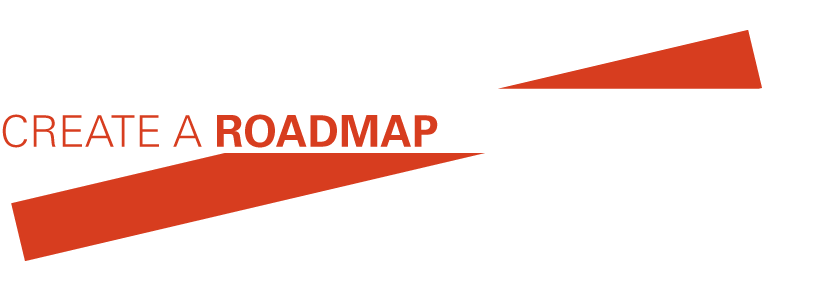TAKE ACTION
The Open Access movement has made many laudable efforts over the past 20 years, but progress is slow and we are still decades away from achieving the envisioned open information environment. Worse, even while new OA strategies make headway, the largest traditional publishers are fortifying their paywalls and extracting booming revenues through annual subscription price increases and hybrid publishing (double-dipping). In order to finally make open access the default in scholarly publishing, we need to take collective action and divest of subscriptions, in order to invest in Open Access.

If you agree that
- Researchers should retain full rights to share their work and the freedom to publish in the journals of their choice and participate in the publishing services they wish,
- The current subscription model, with its ever-rising paywalls, is an unsustainable barrier to the full fruition of scientific research and the fundamental objectives of open access,
- Scholarly publishing should be supported with economically sustainable and transparent business models and released from the constraints of an obsolete system of dissemination,
then encourage your institution or organization to endorse the OA2020 Expression of Interest, affirming these principles:
- We aim to transform a majority of today’s scholarly journals from subscription to OA publishing in accordance with community-specific publication preferences. At the same time, we continue to support new and improved forms of OA publishing.
- We will pursue this transformation process by converting resources currently spent on journal subscriptions into funds to support sustainable OA business models. Accordingly, we intend to re-organize the underlying cash flows, to establish transparency with regard to costs and potential savings, and to adopt mechanisms to avoid undue publication barriers.
- We invite all parties involved in scholarly publishing, in particular universities, research institutions, funders, libraries, and publishers to collaborate on a swift and efficient transition for the benefit of scholarship and society at large.
Download the Full Text of the OA2020 Expression of Interest with a PDF form for signature.
Please return the signed form to contact@oa2020.org. A full list of OA2020 signatories can be found here.

Institutions and organizations who endorse the OA2020 Expression of Interest pledge to pursue the large-scale transformation of today’s scholarly journals by converting the funds currently expended on subscriptions into funds to support Open Access publishing models, according to their own publishing preferences.
As libraries currently manage subscription expenditures and publisher negotiations, they will play a lead role in designing and implementing their institution’s roadmap, with the support and engagement of faculty and administration.
Below are some steps that may be helpful in creating your own roadmap to drive transformation in your local context and have impact on a global scale. We also feature here some examples of OA2020 transformation roadmaps already in progress.
- Where are decisions regarding distribution of funds that cover subscriptions made and what steps are necessary to reorganize their flow?
- Are you part of a consortium that can coordinate and streamline processes and negotiations for maximum impact?
- Does your library have an acquisitions strategy that aims to leverage opportunities for open access?
- Does your institution have an Open Access Policy that supports the transition of scholarly communications to Open Access?
- What channels can be used to achieve consensus with faculty and administration?
- What steps, resources and authorizations are necessary to re-organize library support of new OA workflows.
- Gather data on the publishing trends of your institution’s researchers:
- Publisher and journal distribution,
- Share of Open Access publication vs paywalled publication,
- Share of corresponding authorship.
- Gather data on the financial transactions behind your researchers’ OA publications and compare these with your subscription expenditures at the publisher and, if possible, journal level.
- Establish more robust criteria for assessing the value of your current subscriptions by incorporating citation data (ie what journals are your researchers citing in their own publications), publication data (in which journals do your researchers publish) into COUNTER JR5 reports and other criteria relevant to your institution.
- Gain an understanding of how much of the content currently subscribed is available open access through alternative sources.
- Build a business case to support your transformation plan (divesting of subscriptions and investing in open access) based on the evidence gathered in your analysis and assessment exercises.

- Survey your author communities to assess their understanding of the benefits of Open Access publishing and gather insight into their discipline-specific and contextual publishing support needs.
- Conduct outreach campaigns to advise faculty and researchers of their rights, options, impact opportunities, local policies and the publishing support services available to them.
- Present your business case to faculty and administration, consulting and advising with them as you create your transformation plan.
- Define criteria for “fair” publishing costs, in alignment with discipline and contextual perspectives.
- Prepare to reorganize budget structure and model new funding schemes, for example:
- Establish funds to support local and regional OA publishing initiatives
- Create OA publication and co-funding schemes
- Set in place mechanisms to monitor costs and ensure transparency.
- Calculate and allocate (or secure) resources to cover transition costs.
- Adopt strategies to divest of subscriptions, in accordance with local preferences, for example:
- Implement a step-wise reduction in subscription expenditure
- Incorporate open access elements via transitional license agreements
- Engage in subscription reviews and cancellations of “big deals”
- Adopt strategies to invest in Open Access publishing, for example:
- Divert subscription funds to open access publishing models, such as:
- cooperative publishing
- discipline archives
- institutional and regional publishing initiatives
- memberships
- See some examples here.
- Divert subscription funds to open access publishing models, such as:
- Connect researchers and pure open access publishers and publishing initiatives via central, institutional service level agreements
- Endorse the Open Access 2020 Initiative and sign the OA2020 Expression of Interest.
- Take an active part in the OA2020 network and other international initiatives that drive the transition to open access on a global scale.
- Participate in cross-institutional or consortium negotiations for more impactful engagement of publishers in open access publishing agreements to control pricing.
- Advocate for funder/governmental mandates and infrastructure to support the open scholarly communications landscape.
- Invest in open access platforms and services that serve the needs and aims of your researchers.
While continuing to support new and improved forms of OA publishing, the OA2020 Initiative seeks to propel the Open Access movement forward by transforming a majority of today’s scholarly journals from subscription to OA publishing in accordance with community-specific publication preferences. Below is a small selection of sites where you can find a wealth of information on the different strategies and roadmaps that institutions are adopting to divest of subscriptions and invest in open access, in order to achieve our common vision.
University of California, https://libraries.universityofcalifornia.edu/about/initiatives/scholarly-communication/
United States, https://oa2020.us/tools-resources-2/
Austria, http://at2oa.at/en/home.html
Canada, http://www.crkn-rcdr.ca/en/institutional-mobilization-toolkit
Finland, https://www.kiwi.fi/display/finelib/Scholarly+publications+-+FinELib+negotiations
Germany, https://www.projekt-deal.de/about-deal/
Germany, http://oa2020-de.org/en/pages/aims/
Max Planck Society, https://openaccess.mpg.de/2255290/offsetting-effects-for-the-mpg-in-2017
Japan: JUSTICE (Japan Alliance of University Library Consortia for E-Resource) OA2020 Roadmap, https://www.nii.ac.jp/content/justice_en/documents/JUSTICE_OA2020roadmap-EN.pdf
Netherlands, http://www.vsnu.nl/Roadmap-open-access-2018-2020-English/
Sweden, http://openaccess.blogg.kb.se/english/
Switzerland, https://www.swissuniversities.ch/…/Open_Access__strategy_final_DE.pdf
Knowledge Unlatched, https://oa2020-de.org/en/pages/KUjournalflipping/
Open Access Guidelines, Statements and Policies
Here is a selection of OA guidelines, statements and policies which may be helpful in defining your own roadmap. A more complete resource can be found at https://roarmap.eprints.org/.
- University of California Publisher Strategy and Negotiation Task Force toolkit for negotiating transformative agreements (May 2019)
- ESAC Initiative Guidelines for Transformative Agreements (2019)
- LIBER: http://libereurope.eu/blog/2017/09/07/open-access-five-principles-negotiations-publishers/ (September 2017)
- Norway: https://www.regjeringen.no/en/dokumenter/national-goals-and-guidelines-for-open-access-to-research-articles/id2567591/ (May 2017)
- Recommendations for the Transition to Open Access in Austria (May 2016)
- European University Association Roadmap on Open Access to Research Publications (February 2016)
- LERU Statement for the 2016 Dutch EU Presidency: Christmas is Over. Research funding should go to research, not to publishers! (October 2015)
- Science Europe Principles on Open Access to Research Publications (May 2015)
- Sweden: Proposal for National Guidelines for Open Access to Scientific Information (2015)
- Global Research Council Action Plan towards Open Access to Publications (May 2013)
- RCUK Policy on Open Access (2012 ongoing)

Divest of subscriptions, invest in Open Access. Whatever the strategies adopted, as institutions move their budgets away from subscriptions and invest in Open Access publishing models the stronghold of the traditional subscription system is weakened.
Nearly 80% of scholarly publishing lies with just a handful of publishers, and a growing percentage of institutions whose scholarly outputs publishers depend upon, are embracing the OA2020 strategy and adopting tactics to drive the transformation. Based on current world publication trends, with commitments from a relatively small number of global research-intensive institutions, we could reach the turning point by our 2020 target, but the involvement of institutions from every geographical and academic context are essential to creating a truly open and just information environment.
Your action will make the difference!


